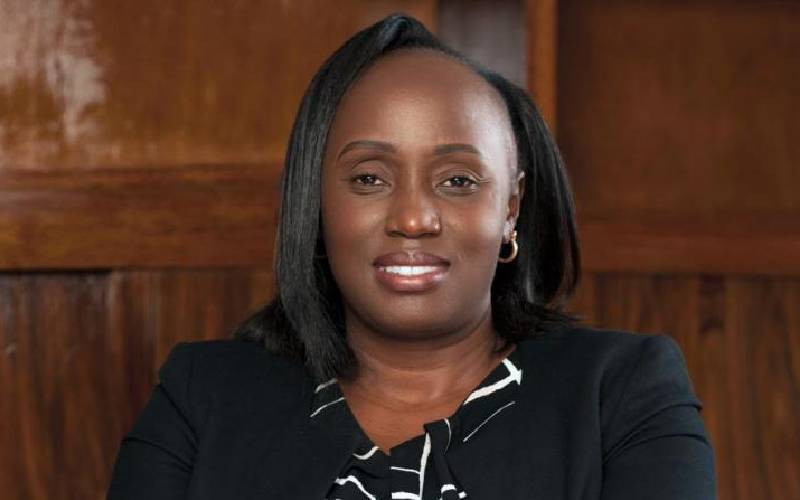The demand for and opportunities that exist for loan sharks in Kenya are boundless. This has seen all sorts of lenders crop up in corner shops in estates and major town centres. Their advertisements are nearly as impossible to miss as the waganga ones.
Informal lenders once ruled the short-term lending sector, but in the last couple of years, the market has become skewed. Formal lenders have got involved and shifted the focus to mobile-based lending applications.
The biggest players are either backed by formal lenders, such as CBA (M-Shwari), KCB (KCB M-Pesa), Equity Bank (Equitel) and Co-op Bank (M-Coop Cash), or backed by foreign-based venture capitalists, which is where businesses like Tala, Branch and Saida fall.
Mobile lending
Los Angeles-based Tala is financed by foreign venture capitalists that include Artha Indian, Bam, Collaborative Fund and Data Collective.
Branch International, which is based in Silicon Valley, recently received Sh955 million from Andreesen Horowitz, a venture capital firm that’s also based in Silicon Valley, while Khosla Impact Fund and Formation 8 put in Sh140 million.
American seed accelerator YC Combinator finances Saida, a mobile lending app that was co-founded by Kyale Mwendwa and Kenneth Ngetha.
According to a recent Village Capital study, more than 90 per cent of funding for East African start-ups goes to expatriate founders, with most early-stage investors in the region being foreigners themselves.
But Kenyans are not known to shy away from the challenge of deep-pocketed investors, and are determined to play in the microloans sector, despite the odds.
Peter Mombo runs the Mombo mobile app, which gives quick-fix loans for between one and 180 days, and long-term credit for up to two years at interest rates of between 1 per cent and 10 per cent per month.
He believes his company will succeed because it has a better grasp of Kenyans’ peculiarities.
“Our advantage is that we understand our clients better because when you look at our Mombo application, we offer a long-term facility for up to 48 months, as well as short-term facilities, savings and investments,” Peter says.
“Tala only gives loans of up to Sh50,000 because they have gone to the mass market, but we can give up to Sh1 million; we are a bit selective.”
Fredrick Alunala, the 30-year-old founder of Ndovu Group Investments, a financial technology company, says very many innovative ideas don’t get to see the light of day without attracting foreign financing.
Fredrick’s company has several solutions in the market, including M-Mkopo, a mobile e-loaning solution that various Saccos and microfinance institutions (MFIs) are using to redefine their lending operations.
Greatest difficulty
“The greatest difficulty in selling software is proof of concept. This is what delayed us in penetrating the market. Yes, we have a good software that is working, but getting a merchant client to test it as the first client is the major hurdle that fintech companies face, and I’d say more than 90 per cent of them die at this stage,” he says.
“For us, we were blessed with this MFI, Ushindi Bora Micro-Lenders, that decided to test the solution as our first client. We walked with them and refined the solution even further through their market support.”
While Silicon Valley is known for having venture capitalists and angel investors who’re always on the lookout for the next big thing, Kenya’s Silicon Savannah has yet to catch up on this front. The problem may boil down to the fear some local start-ups have that they may lose their idea to investors without getting proper compensation.
Last year, the tech community was treated to intrigues around Angani Ltd, a Nairobi-based cloud services company. It was claimed that the investor pushed out the initial founders and hacked the company’s system after the founders fled with crucial passwords, causing a down-time that took down a number of the applications and web pages it hosted.
But there appears to be change afoot, with local investors looking to give start-ups the leg up that they need.
Telecommunications giant Safaricom is looking to form partnerships with digital innovators to stay ahead of the game. The firm set up of a new unit to focus on incubating tech ideas with the potential of loading them onto its payment system, M-Pesa.
The telco is shopping for solutions like Little, a taxi-hailing service it partnered on with Craft Silicon, or Showmax, a partnership with a South African firm that delivers video content.
The firm would be competing for partnerships with players like iHub, which offers entrepreneurs the environment to connect and work on ideas together. iHub hosted Facebook founder Mark Zuckerberg in September last year, and will host Chinese tech billionaire Jack Ma this month.
In Peter Mombo’s estimation, raising funding for local start-ups is the most difficult thing to do, so partnerships are likely to gain more acceptance.
“(The microloans industry) is challenging, especially given the kind of funding one would need to scale the business,” he says.
Fredrick added that most start-ups finance their business out of their own pockets, or borrow cash from friends and relatives to carry out the research and development needed for system development and to come up with a final product. But once this goes right, the sky is the limit.
Major targets
Fredrick’s mobile solution, for instance, has lent out Sh26.2 million in the last five months, and is set to launch in the Democratic Republic of Congo through a partnership with the United Bank of Africa DRC and M-Pesa DRC.
He is currently working with Lompasago Sacco, Lifeboat Sacco, Ushindi Bora Micro-Lenders and Connect Credit Micro-Lenders, and has set his sights on the more than 200 Saccos in Kenya, most of which are outside major towns.
“These are our major targets. There are also more than 50 registered MFIs and around 10 microfinance banks in Kenya. Uganda, Tanzania, Rwanda, Burundi and Nigeria are in our expansion plans,” says Fredrick.
He conceptualised and developed M-Mkopo in 2012, and later registered a copyright for the solution at the Kenya Copyright Board in 2015, three years after developing a working prototype.
“It was on and off development since at the time we didn’t have stable capital to sustain a team of software developers,” he says.
For online lending applications, the biggest investment needed is in software and the kind of talent that can develop and customise an application to market needs.
“Our challenges are getting enough capital so that we can attract talent like the more established firms. For licensing, we develop in-house and continue to customise our app,” says Patrick.
“We’ve already launched a new application that allows our members to access cash in just five minutes, though new customers may have to wait a bit longer as we gather more information on them.”
 The Standard Group Plc is a multi-media organization with investments in media
platforms spanning newspaper print operations, television, radio broadcasting,
digital and online services. The Standard Group is recognized as a leading
multi-media house in Kenya with a key influence in matters of national and
international interest.
The Standard Group Plc is a multi-media organization with investments in media
platforms spanning newspaper print operations, television, radio broadcasting,
digital and online services. The Standard Group is recognized as a leading
multi-media house in Kenya with a key influence in matters of national and
international interest.
 The Standard Group Plc is a multi-media organization with investments in media
platforms spanning newspaper print operations, television, radio broadcasting,
digital and online services. The Standard Group is recognized as a leading
multi-media house in Kenya with a key influence in matters of national and
international interest.
The Standard Group Plc is a multi-media organization with investments in media
platforms spanning newspaper print operations, television, radio broadcasting,
digital and online services. The Standard Group is recognized as a leading
multi-media house in Kenya with a key influence in matters of national and
international interest.









